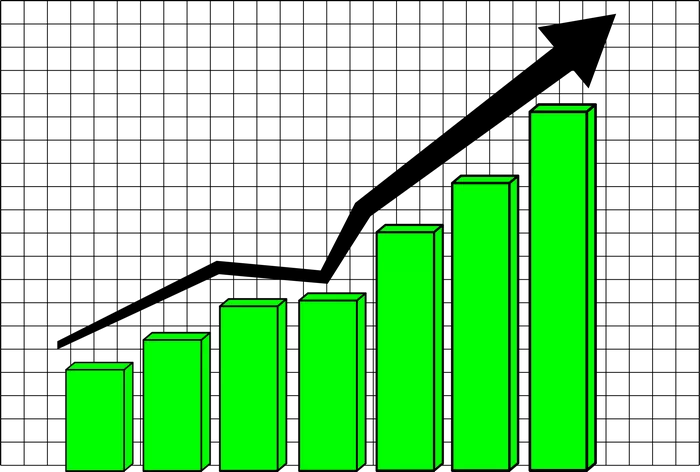When a company reports good earnings, one might expect its stock price to rise in response to the positive news. However, it’s not uncommon for the opposite to happen—stocks can sometimes fall even after strong earnings reports. This paradox can be confusing for many investors, but understanding the underlying reasons behind these market reactions is crucial for anyone navigating the stock market. This article will explore 8 reasons why stocks may fall after good earnings.
1. Market Expectations vs. Actual Results
The Role of Expectations
Stock prices are often driven by market expectations rather than just the raw numbers in an earnings report. Analysts, investors, and traders form expectations about a company’s performance well before earnings are released. These expectations are reflected in the stock price leading up to the earnings announcement.
When Good Isn’t Good Enough
Even if a company reports strong earnings, if those results fall short of market expectations, the stock price may decline. For example, if analysts expected earnings of $2.00 per share, but the company reports $1.95, the stock could drop despite the seemingly good performance. This reaction occurs because the market had priced in the higher expectation, and the actual result is seen as a disappointment.
2. Guidance and Forward-Looking Statements
The Importance of Future Outlook
Investors are not only concerned with how a company performed in the past quarter but also with what the future holds. During earnings calls, companies often provide guidance or forward-looking statements about future earnings, revenue, and other key metrics.
Conservative Guidance Can Trigger Sell-offs
If a company’s guidance is conservative or suggests slower growth in the future, investors may react negatively, leading to a decline in the stock price. This can happen even if the current earnings beat expectations. For instance, a tech company might report record profits but indicate that future revenue growth could slow due to increased competition. This cautious outlook can overshadow the good earnings and lead to a drop in the stock price.
See Also: 7 Stocks to Buy in Singapore Now
3. Profit-Taking by Investors
Locking in Gains
Another reason stocks might fall after good earnings is profit-taking. When a stock has been on a strong upward trajectory, investors who have seen significant gains may decide to sell their shares to lock in profits, especially after a positive earnings report.
The Self-Fulfilling Prophecy
This selling can create a self-fulfilling prophecy where the stock price drops simply because others are selling. As more investors see the price decline, they may also decide to sell, leading to further downward pressure on the stock. This phenomenon can occur regardless of the actual earnings performance.
4. Overvaluation Concerns
High Valuations and Market Sentiment
Sometimes, a stock may be perceived as overvalued even after reporting good earnings. If the stock has been trading at a high price-to-earnings (P/E) ratio or other valuation metrics, investors might fear that the stock’s price has outpaced its fundamentals.
Reassessment of Value
After a positive earnings report, investors might reassess whether the stock’s current price is justified, given the company’s future prospects. If they believe the stock is overpriced, they may sell their shares, leading to a decline in the stock price. This is particularly common in high-growth sectors like technology, where stocks can trade at lofty valuations.
5. Broader Market Conditions
Macro Factors Impacting Stock Prices
Broader market conditions can also play a significant role in how a stock reacts to earnings. Even if a company reports good earnings, factors like rising interest rates, economic uncertainty, geopolitical tensions, or market-wide corrections can lead to a decline in its stock price.
Correlation with the Overall Market
In a bearish market environment, investors may be more risk-averse and quick to sell, even when individual companies perform well. If the overall market is trending down, it can drag down stocks across the board, regardless of their earnings performance.
6. Sector-Specific Issues
Challenges Within the Industry
Sometimes, stocks fall after good earnings due to sector-specific issues. For instance, if a company in the energy sector reports strong earnings, but oil prices are falling, the stock might still decline because the market is concerned about the broader sector’s prospects.
Competitive Pressures
Additionally, competitive pressures within a sector can impact how a stock reacts to earnings. If a competitor reports even better earnings or launches a disruptive product, it can overshadow a company’s good earnings and lead to a decline in its stock price.
7. Insider Selling
The Signal of Insider Sales
Insider selling refers to the selling of stock by a company’s executives or major shareholders. While insider selling can happen for various reasons, significant selling immediately after an earnings report can be interpreted by the market as a lack of confidence in the company’s future prospects.
Market Perception of Insider Behavior
If insiders sell a large amount of stock after a good earnings report, investors may become concerned that the stock is overvalued or that the company’s growth is unsustainable. This perception can lead to a decline in the stock price, even if the earnings were strong.
8. Short-Term Trading Dynamics
High-Frequency and Algorithmic Trading
In today’s markets, short-term trading dynamics, including high-frequency trading (HFT) and algorithmic trading, can contribute to stock price volatility following earnings announcements. These trades are often based on complex algorithms that react to news, data, and market signals in milliseconds.
Exacerbating Price Movements
These short-term trading activities can exacerbate price movements, both up and down. After a good earnings report, if an algorithm detects profit-taking or a dip in the stock price, it might trigger a cascade of sell orders that drive the price down further. This rapid, automated trading can lead to a stock falling even after positive earnings.
Conclusion
Understanding why stocks might fall after good earnings requires a nuanced view of market dynamics. While strong earnings are a positive indicator of a company’s performance, they are just one piece of the puzzle in stock valuation. Market expectations, future guidance, profit-taking, and broader economic factors all play critical roles in how stocks react to earnings announcements.
For investors, it’s essential to look beyond the headline numbers and consider the broader context in which a company operates. By doing so, they can make more informed decisions and avoid the pitfalls of reacting solely to short-term market movements.
Related topics:































